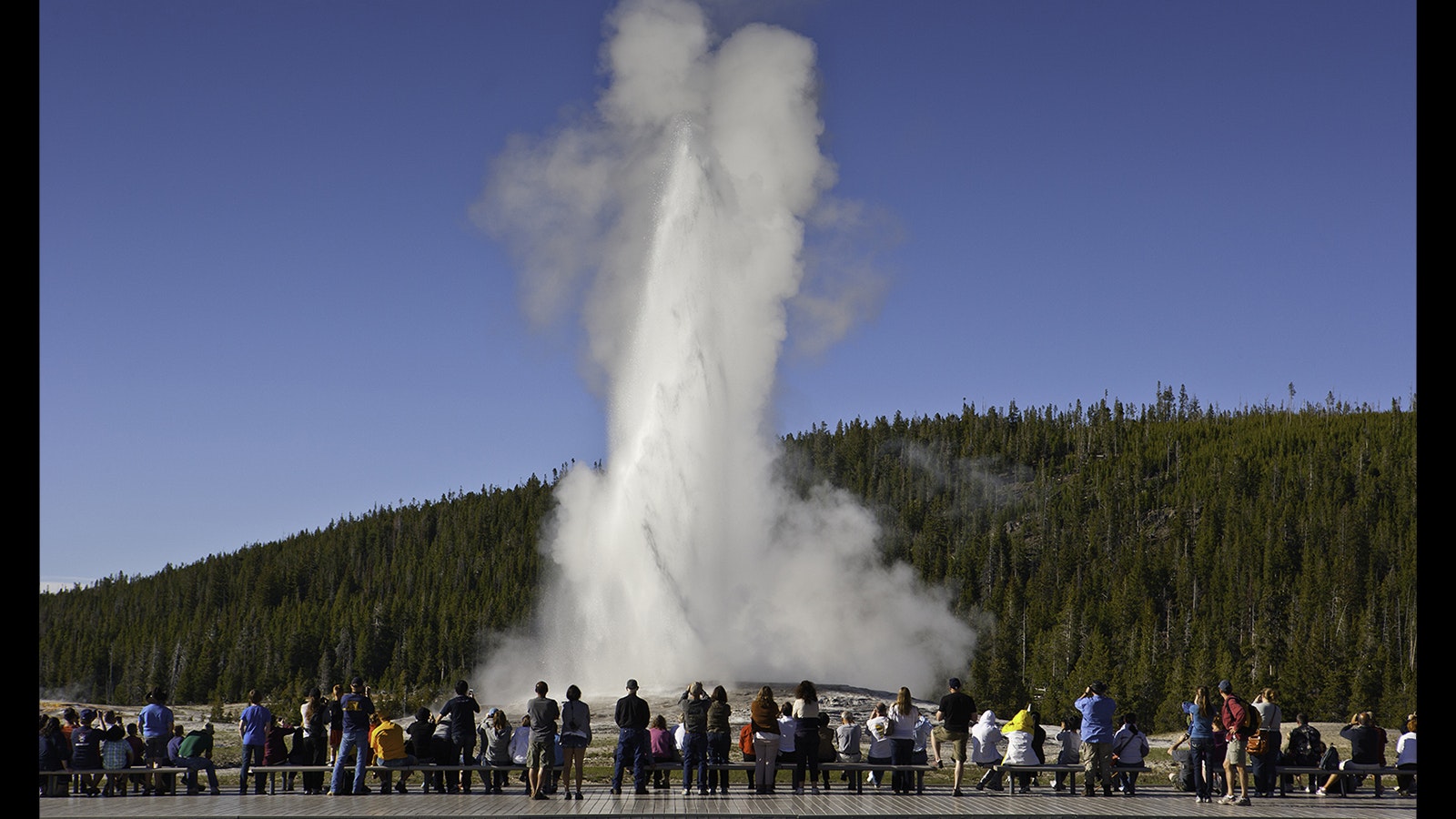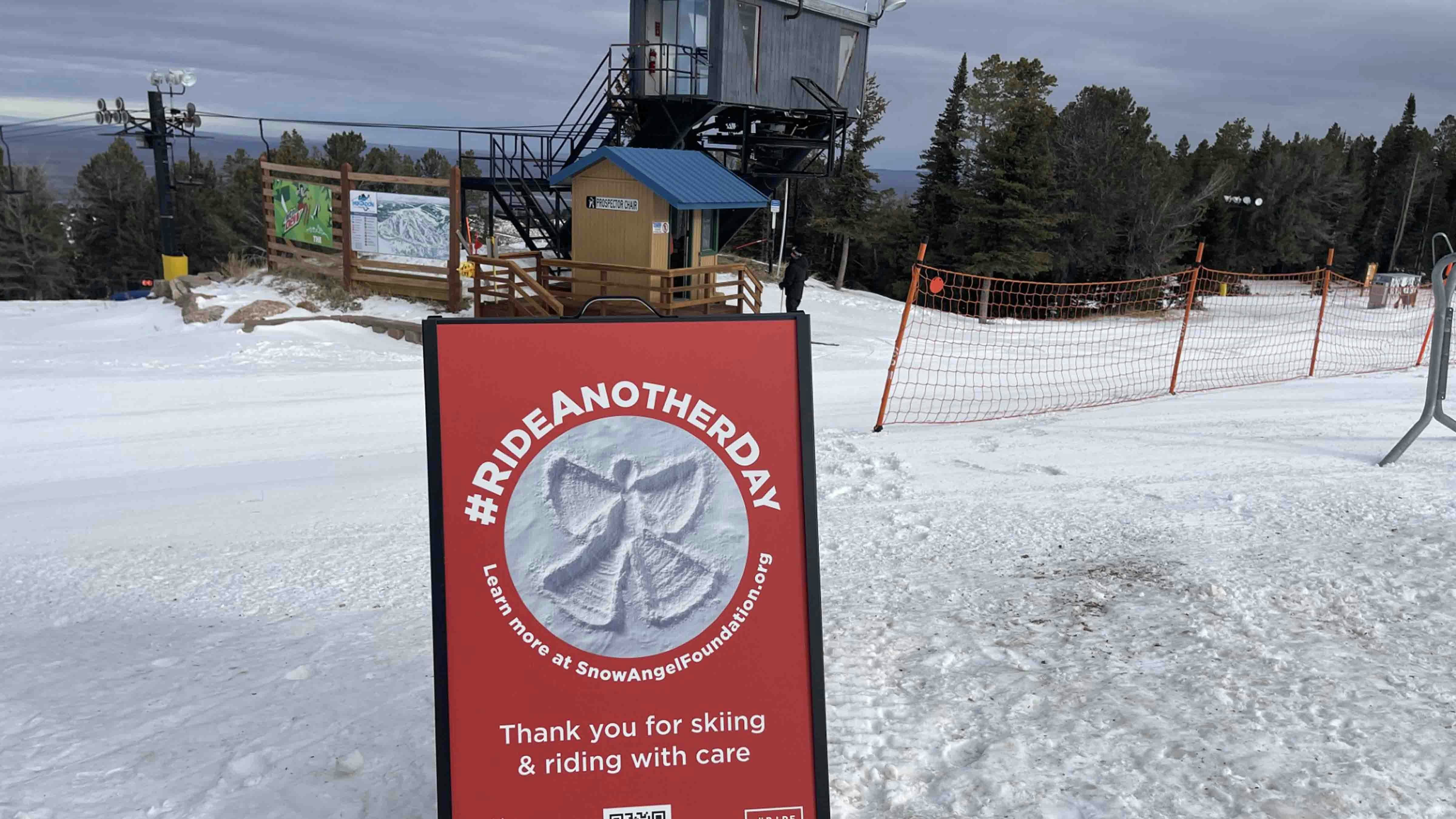YELLOWSTONE NATIONAL PARK — On this day, the site of North America’s largest supervolcano was apparently feeling pretty sedate while the rest of the park was jumping.
America’s first national park was sharing its wonders with 150,000 people on Aug. 11, my 55th consecutive year of visiting the park.
And the crowds were huge.
Based on this experience, a new annual record of 5 million Yellowstone visitors appears to be in reach.
Cowboy State Daily readers know how much I love the park.
Earlier, it had been unlikely that my string of visiting the park each year for 54 consecutive years would continue. And yet, here I was.
Things worked out.
This Unlikely Trip
Had I not made the long drive to Lovell to visit Big Horn Canyon, I probably would not have made it to Yellowstone this year.
But here I was in the northernmost part of the state and, heck, Yellowstone was almost on my way home to Lander.
The trip from Lovell through Byron and Powell to Cody was uneventful, but incredibly beautiful at this time of year. Fields were green and there was little smoke in the sky.
It was just a great time for a road trip across the northern part of the state.
All four of these towns looked prosperous and were busy little places. Cody, especially, was in full tourist mode.
The East Entrance to Yellowstone is through the gorgeous Wapiti Valley west of Cody.
So many interesting rock formations — like Sleeping Giant, Elephant Head, the Holy City, and the Smith Mansion — make it almost a destination in its own right.
The tunnels around the Buffalo Bill Dam and Reservoir were longer than I remembered, and the views of the towering mountains were spectacular.
On this busy day, the wait was only 10 minutes to get through the East Entrance and, voila, I almost got out and kissed the ground (but didn’t — still a long way to go).
After coming down the long Sylvan Pass, I turned onto a small road north to a high-altitude viewing site for looking over Yellowstone Lake.
It was my first time at Lake Butte Overlook, and it was spectacular.
Next stop was the convenience store at Fishing Bridge for some gas and goodies. There would be no sit-down restaurant stops on this quick trip.
Crossing Fishing Bridge was disappointing — no fishermen.
Years ago, you would see hundreds of fishermen on that bridge pulling in nice-sized trout. That’s now prohibited to help the fish population.
Crazy Coincidence
It was time for a quick stop at the Lake Hotel to put another item in the “it’s a small world” file.
My nephew Ryan Johnson from Denver had just arrived there too. Neither of us knew the other was going to be there.
From there it was north to the canyon area.
The reason the world’s first national park is called Yellowstone is because of the fantastic Yellowstone Canyon. It is full of yellow rock, and features two of the most inspiring waterfalls in the country, the Upper Falls and the Lower Falls.
On this day, the brink of the Upper Falls looked inviting.
The crowds were huge and the parking lot was full, but it was not as jammed with tourists as down on the more popular Artist’s Point.
About 20 miles west is Norris Geyser Basin, perhaps the hottest natural place on earth.
Luckily, I have been there dozens of times, and on this day the parking lot was full and lines of cars were all over the place. Folks had parked almost a third of a mile down the highway.
Yellowstone sits on top of North America’s largest and most active supervolcano.
It last exploded about 630,000 years ago and is overdue, although scientists believe we are safe for now.
There are more thermal features in Yellowstone than anywhere else on earth. At least 22 people have died over the years after falling onto the hot thermal pools.
Farther down the highway is the most distinctive place in this very unique park.
The Grand Prismatic Spring is like nothing else in the world.
On this day, it was impossible to get near it. Cars were parked a half mile down the road from the parking lot and drivers were lined up like it was a New York City rush hour.
A whole bunch of those 150,000 tourists visiting the park on this day were stacked up there.
Old Faithful
There is a reason Old Faithful has that name — it never disappoints. Every 90 minutes or so, it erupts right on cue.
On this day, it performed perfectly, plus finding a nice parking spot in front of the historical Old Faithful Inn made it perhaps the most convenient stop on the entire trip.
Who doesn’t love that old building? It is the biggest and most elegant log building in the world.
On this day it was teeming with folks buying ice cream or souvenirs or listening to tour guides talk about this amazing place.
This is, by far, the most developed area in the park and there must be parking for thousands of vehicles. It can hold them all.
Then it was time to leave.
So, leaving Old Faithful in the rear-view mirror it was time to turn south and head toward the long stretch out of the park and toward the Tetons of Jackson Hole.
Perhaps the most beautiful lake in America is Jackson Lake, and it did not disappoint.
Oxbow Bend looking toward Mount Moran might be one of the most photographed places in the country.
The Biggest Differences
So, what’s changed the most about the park in the last 55 years?
A lot.
It is easy to list three gigantic changes and three more subtle changes.
First, way back in the 1970s, park leaders stopped the policy of allowing humans to feed bears.
Officials closed the open dumps and ended the activity that resulted in bears becoming habituated by making garbage their main food source. This allowed people to feed the bears goodies from their car windows.
Looking back, it was crazy, but that was the norm during my first time to the park in 1970. It was the No. 1 tourist attraction until it ended.
Later, the grizzly bear population was expanded to provide an apex predator to keep bison and elk populations manageable.
Second, in 1988, about 36% of the park burned.
Those horrendous wildfires were just terrible, but the lasting impact appears to be largely positive.
For decades, much of the park was a burned-out scar.
It has always been like a miracle how firefighters were able to save those two wonderful old hotels, the Lake Hotel and Old Faithful Inn.
And third, in 1995, wolves were introduced as a second apex predator.
Critics worry that too many young moose, elk, bison, and deer have been killed, but the reintroductions overall seem to have worked.
More Subtle Changes
First subtle change has been the surge in international tourism, which started to happen about the turn of the century and continued up until the COVID years of 2020-2023, when it dropped.
International visitation has steadily grown since and 2025 may be the biggest year yet.
Folks from Wyoming, Montana, and Idaho back then could visit the park in May and September and have it for themselves.
No more. The park is packed all months that it is open.
Another subtle change is the quality and price of the lodging in the park. Concessionaire Xanterra has done an excellent job of improving all the facilities in the park, but rooms are no longer a bargain.
It Was Time To Leave
At the South Entrance of the park, you take the John D. Rockefeller Parkway into Grand Teton National Park. It is all one continuous unit.
And then it was Moran Junction, and the national parks were behind me.
No bears or wolves on this trip, just thousands of people enjoying themselves in the most unusual and wonderful place on Earth.
It was a good day.


















